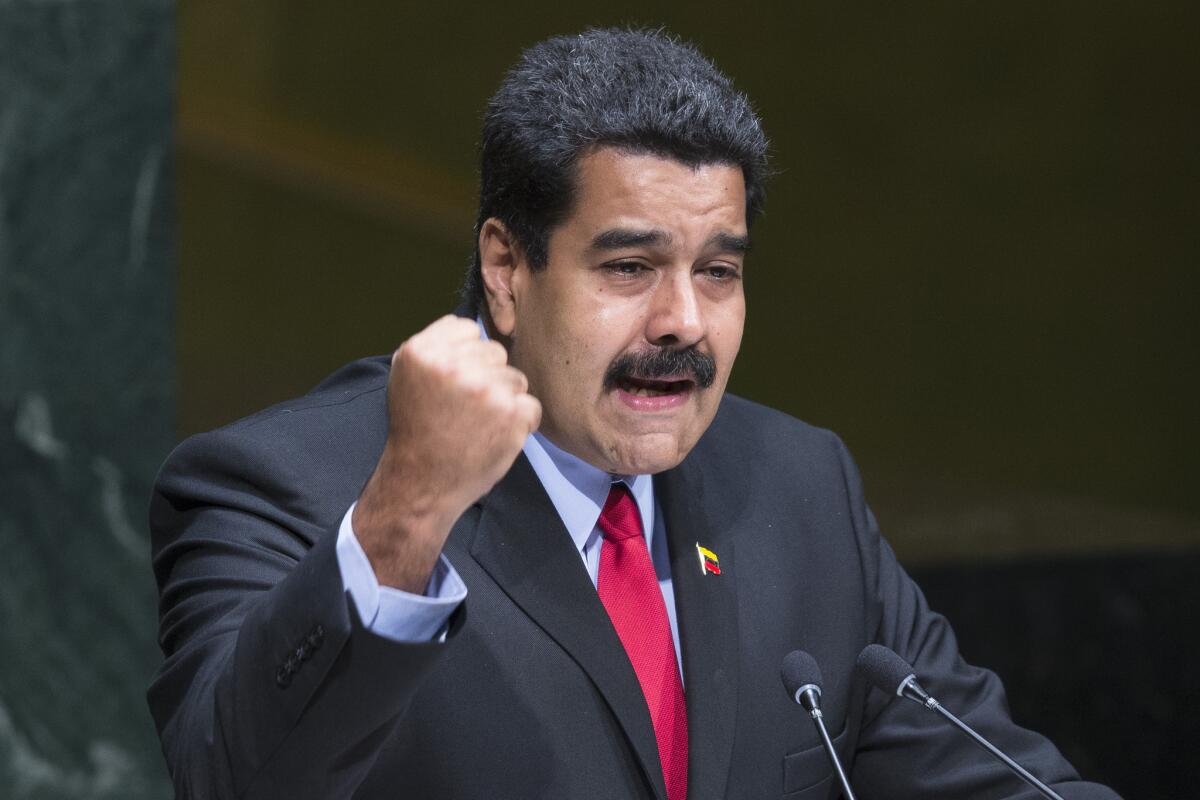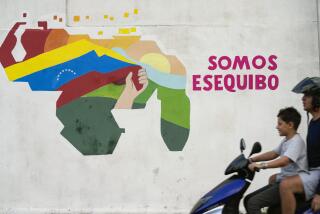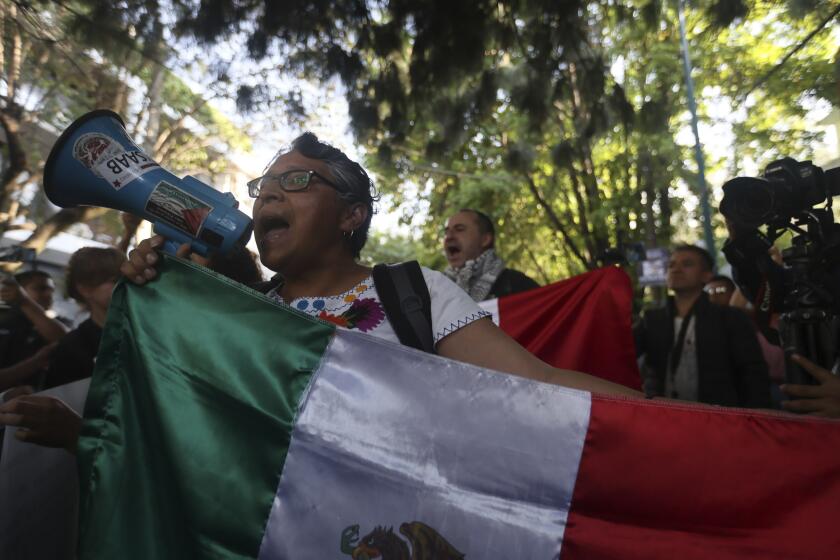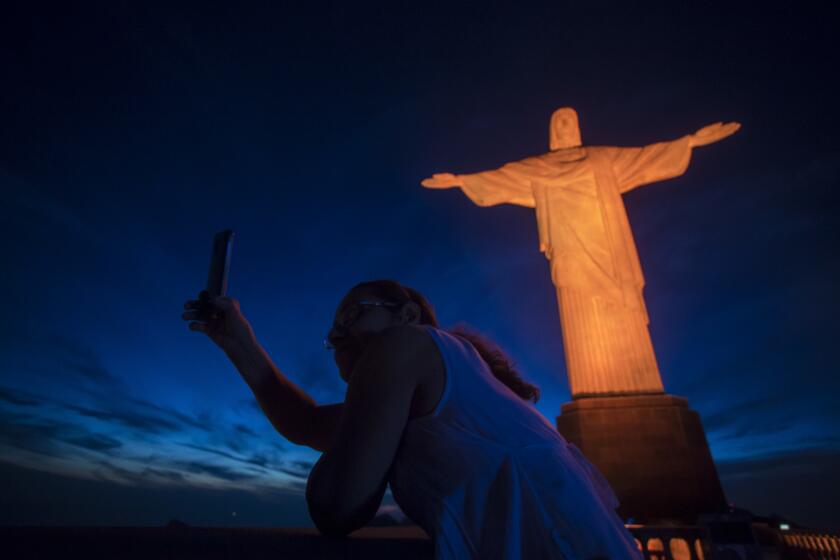Venezuela’s Maduro accuses airlines of waging ‘economic war’

Venezuela’s currency, the bolivar, hit a new low on black market exchanges Tuesday, and President Nicolas Maduro has lashed out at international air carriers for waging “economic war” in trying to collect the $3.5 billion the government owes them in ticket revenue.
Unofficial currency traders were offering 100.93 bolivars to the dollar, more than 10 times the official rates of 6.3 bolivars (applied at banks and to government purchases of foreign goods and services) and 12 bolivars to the dollar for some businesses. A limited amount of greenbacks are available to some bidders at 50 bolivars to the dollar.
The scarcity of dollars in Venezuela means businesses and private individuals buying foreign goods or planning international travel resort to the black market to buy greenbacks. The demand-supply imbalance at currency traders has caused the cost of dollars to skyrocket.
Meanwhile, in a speech televised to the nation late Monday night, Maduro reacted angrily to the airlines’ ongoing campaign to collect the balance due to them.
“I’ve asked the vice president to resolve this situation and tell [the airlines] one by one, “Do you want to work in Venezuela? We need a radical solution for this economic war. ... If only one [airline] is left, then there will be only one,” Maduro said. Airlines clamoring for payment constitute “efforts to strike at us nationally, internationally,” Maduro said.
Maduro also said the cash-strapped government would take over Clorox Co. manufacturing facilities to keep them operating a week after the U.S consumer products company announced it was shutting down operations after sustaining operating losses.
Clorox announced on Sept. 22 that it was looking for a buyer for its Venezuelan operations, saying that its business there was not “viable” due to high taxes, difficulty in securing supplies and “operating restrictions.” Maduro did not say whether the government would pay Clorox anything.
Business groups estimate that Maduro and his late predecessor, Hugo Chavez, have nationalized at least 1,190 businesses since 1999. Among the better known are the French-Colombian Exito supermarket chain, Mexico’s Cemex cement company and the CANTV telephone carrier that was partially owned by U.S.-based Verizon Communications.
The government handles all official foreign currency transactions and has blocked or delayed payment of funds owed to many foreign companies as its cash woes have intensified.
Several airlines such as Avianca, Alitalia and Air Canada have either cut back on flights in and out of Venezuela or stopped serving the market altogether.
International Air Transport Assn. spokesman Jason Sinclair confirmed in an email Tuesday that the “current amount of blocked funds” owed to two dozen air carriers by the Venezuelan government in connection with air ticket sales is $3.5 billion.
The amount due the air carriers is less than the $4 billion owed several months ago, as the government has released some funds, Sinclair said.
Venezuela’s economic problems have deepened in recent months. Inflation is at a 63% annual rate and consumers face ongoing scarcities of basic food and household goods. High inflation is especially hitting the poor, whose wages aren’t being raised as fast as the currency loses value, analysts say.
On Tuesday, many residents of Caracas, the capital, and other cities were hit by one of the periodic electricity outages that government critics have said are caused by lack of investment in a crumbling electric power infrastructure.
The credit rating firm Standard & Poors downgraded Venezuelan debt on Sept. 16, saying there was a 50% chance the country would default on its sovereign debt in the next two years.
Markets are anxiously waiting to see if the government can make a $5.7-billion payment on foreign debt scheduled for October. Maduro has made public assurances that it will.
For its cash needs, Venezuela increasingly has had to rely on billions of dollars in loans from China, which receives crude oil shipments in payment. Venezuela has received a total of $50 billion in advances from China in recent years.
Special correspondents Mogollon and Kraul reported from Caracas and Bogota, Colombia, respectively.
More to Read
Start your day right
Sign up for Essential California for news, features and recommendations from the L.A. Times and beyond in your inbox six days a week.
You may occasionally receive promotional content from the Los Angeles Times.






